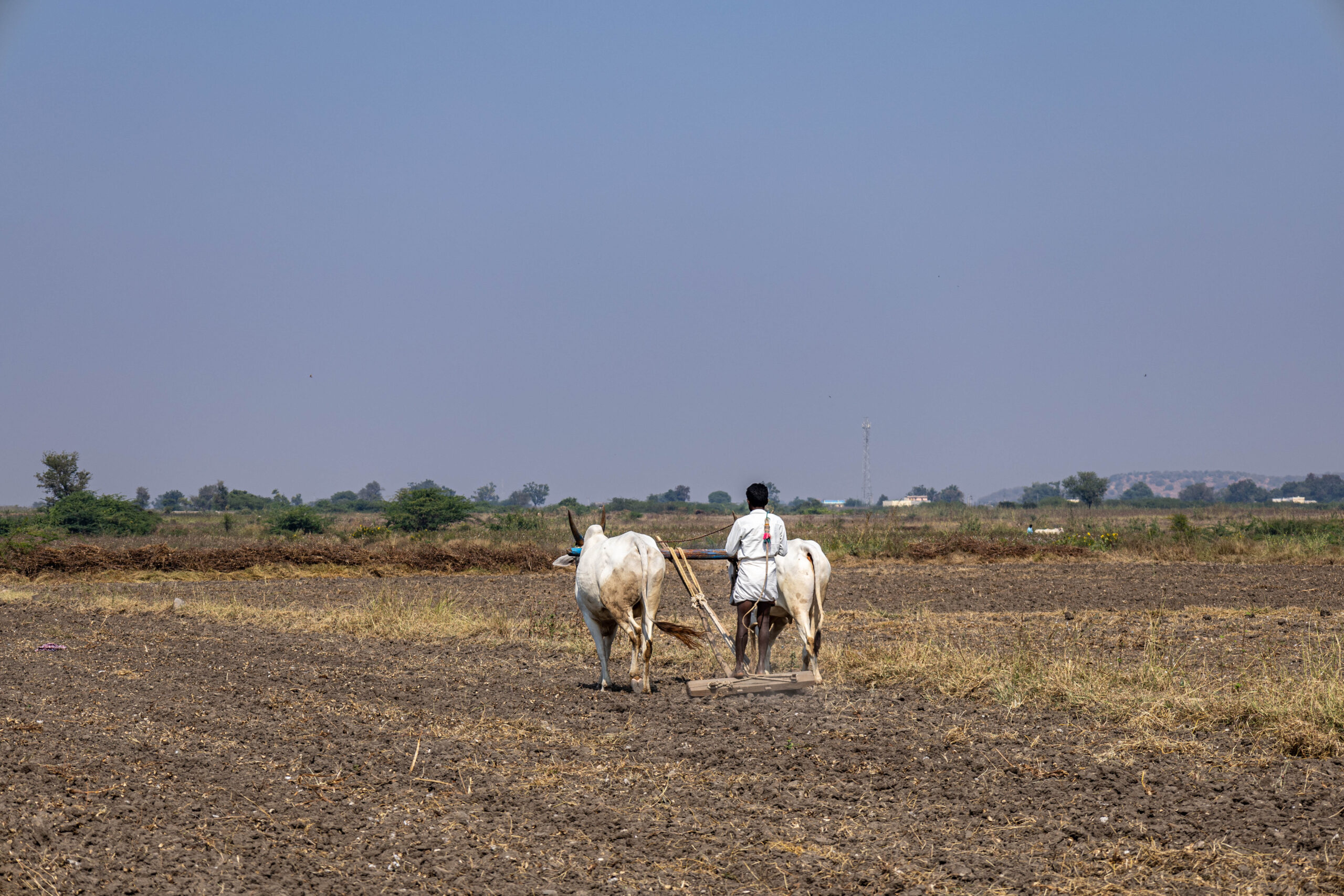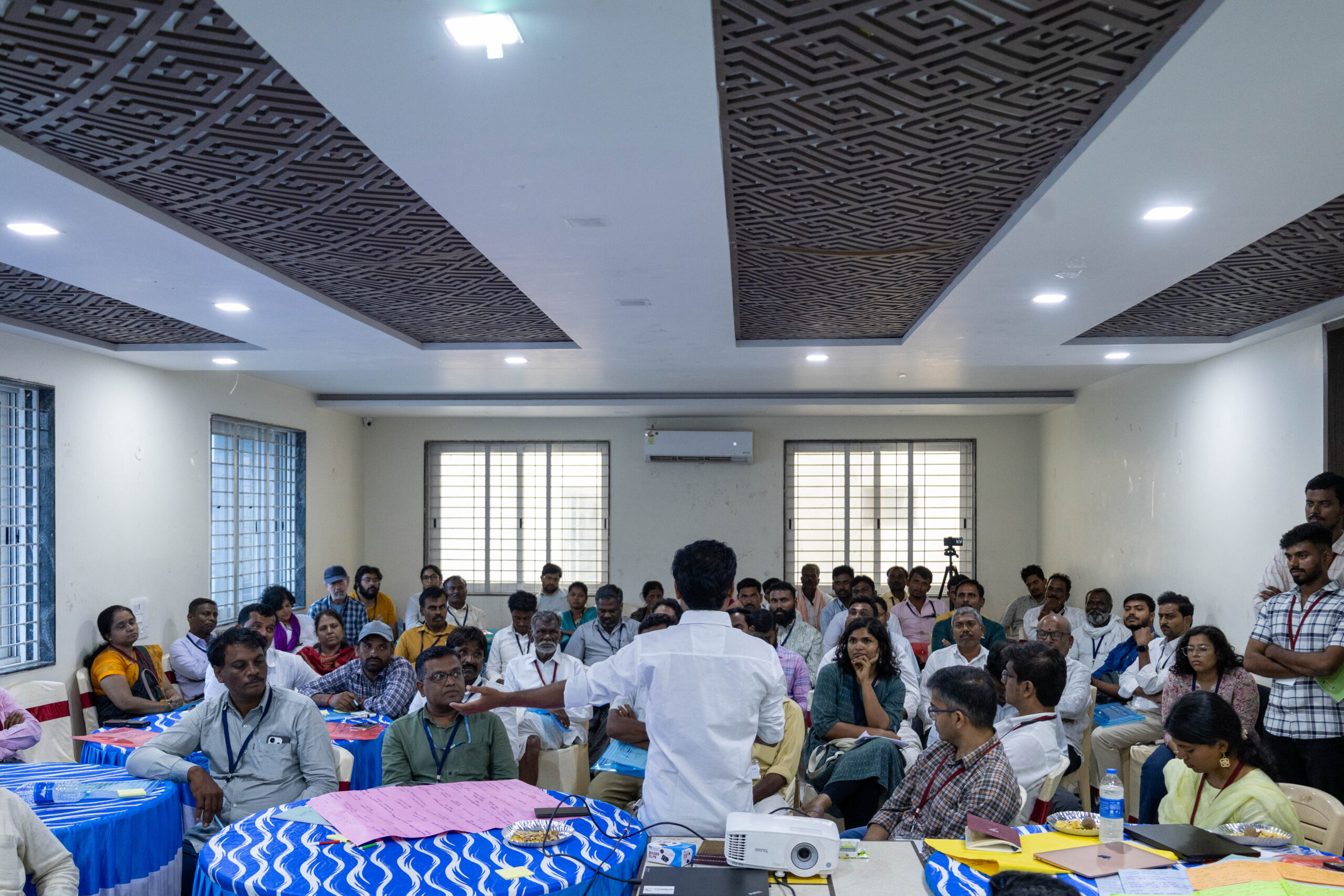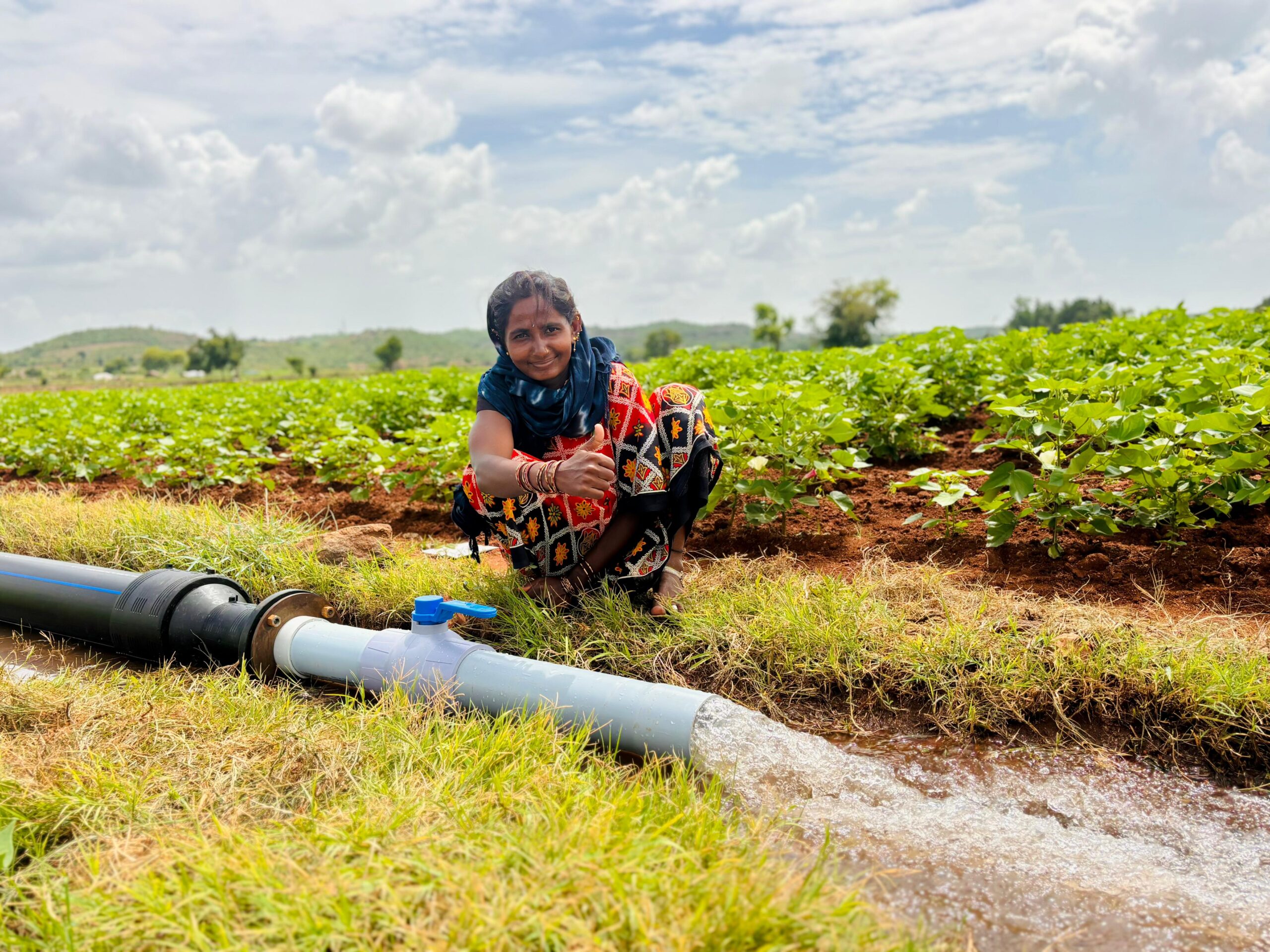Situation Analysis: Raichur Transformation Lab
A farmer tilling a field with bullocks in Devadurga taluk, Raichur district. Photo by Nabina Chakraborty
Despite government efforts to expand irrigation infrastructure, Raichur district in the Indian state of Karnataka faces significant water management challenges, which threaten agricultural productivity and farmer livelihoods. This situation analysis report examines the root causes and contextual factors behind these water management problems.
Rainfall patterns in Raichur have become increasingly erratic due to climate change, with the district experiencing variable rainfall and frequent dry spells over the last decade. These are expected to worsen as climate change intensifies.
Groundwater resources are limited, with fluoride and salinity contamination in many areas. While irrigation projects like the Narayanpur Right Bank Canal and Tungabhadra Left Bank Canal provide surface water, its distribution is highly inequitable—head-end farmers capture most of the water, while tail-end farmers receive little.
Moreover, the transition to water-intensive crops like paddy, supported by government incentives, has led to the overexploitation of water resources and land degradation through waterlogging and soil salinisation. Inadequate drainage infrastructure and a lack of mechanisms for equitable water sharing further compound these problems.
Broader socio-economic trends such as the fragmentation of landholdings, rising cultivation costs, stagnant wage growth, indebtedness, and ecological changes like land degradation have rendered agriculture economically unviable for smallholder farmers. This is driving distress migration and landlessness. Policy support through subsidies and cash transfers has been inadequate in addressing the root causes of these complex challenges.
However, pathways are emerging to address them in a holistic manner. The Government of Karnataka’s canal automation project presents an opportunity for transformative change by empowering farmer groups with controlled water distribution. By mapping stakeholders in the region, we found that there is potential for innovative partnerships between government agencies, civil society, researchers, and communities to facilitate institutional mechanisms for equitable, sustainable water sharing.
Collaborative knowledge production processes like the journey mapping of farmers’ experiences, rural livelihood aspirations studies, community visioning workshops, and stakeholder roundtables are key to making water-sharing institutions and policies effective. With strategic investments to facilitate and innovate solutions, reduce technology costs, and promote participatory irrigation management, Raichur could pioneer an equitable, climate-resilient model for water stewardship in agriculture.
Fill these details to access the publication
Acknowledgements
This work was funded by UK aid from the UK government and by the International Development Research Centre, Ottawa, Canada as part of the Climate Adaptation and Resilience (CLARE) research programme. The views expressed herein do not necessarily represent those of the UK government, IDRC or its Board of Governors.
Published April 2025
Authors Syamkrishnan Aryan, Karishma Shelar, Veena Srinivasan, Navitha Varsha, Manjunatha G, Abhilash Paswan, Aditya Maruvada
Technical Review Devaraj de Condappa, Mallika Sardeshpande, Richard Taylor, Susan Varughese
Data Visualisation Abhilash Paswan, Vidhyashree Katral
Editorial Review Kaavya Pradeep Kumar, Syed Saad Ahmed
Cover Image A farmer tilling a field with bullocks in Devadurga taluk, Raichur district. Photo by Nabina Chakraborty
Suggested Citation Aryan, S., Shelar, K., Srinivasan, V., Varsha, N., G, M., Paswan, A., & Maruvada, A. (2025). Situation Analysis: Raichur Transformation Lab. Water, Environment, Land and Livelihoods (WELL) Labs, Institute for Financial Management and Research (IFMR) Society. https://welllabs.org/situation-analysis-raichur-transformation-lab/
Follow us to stay updated about our work



